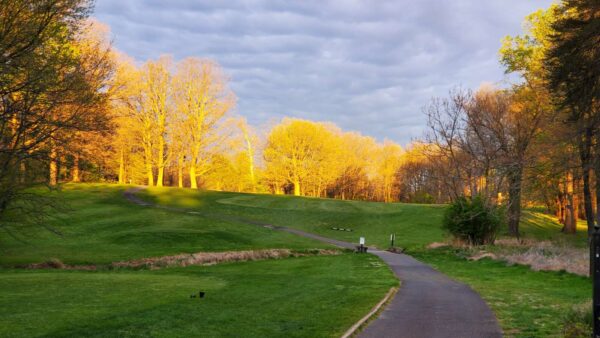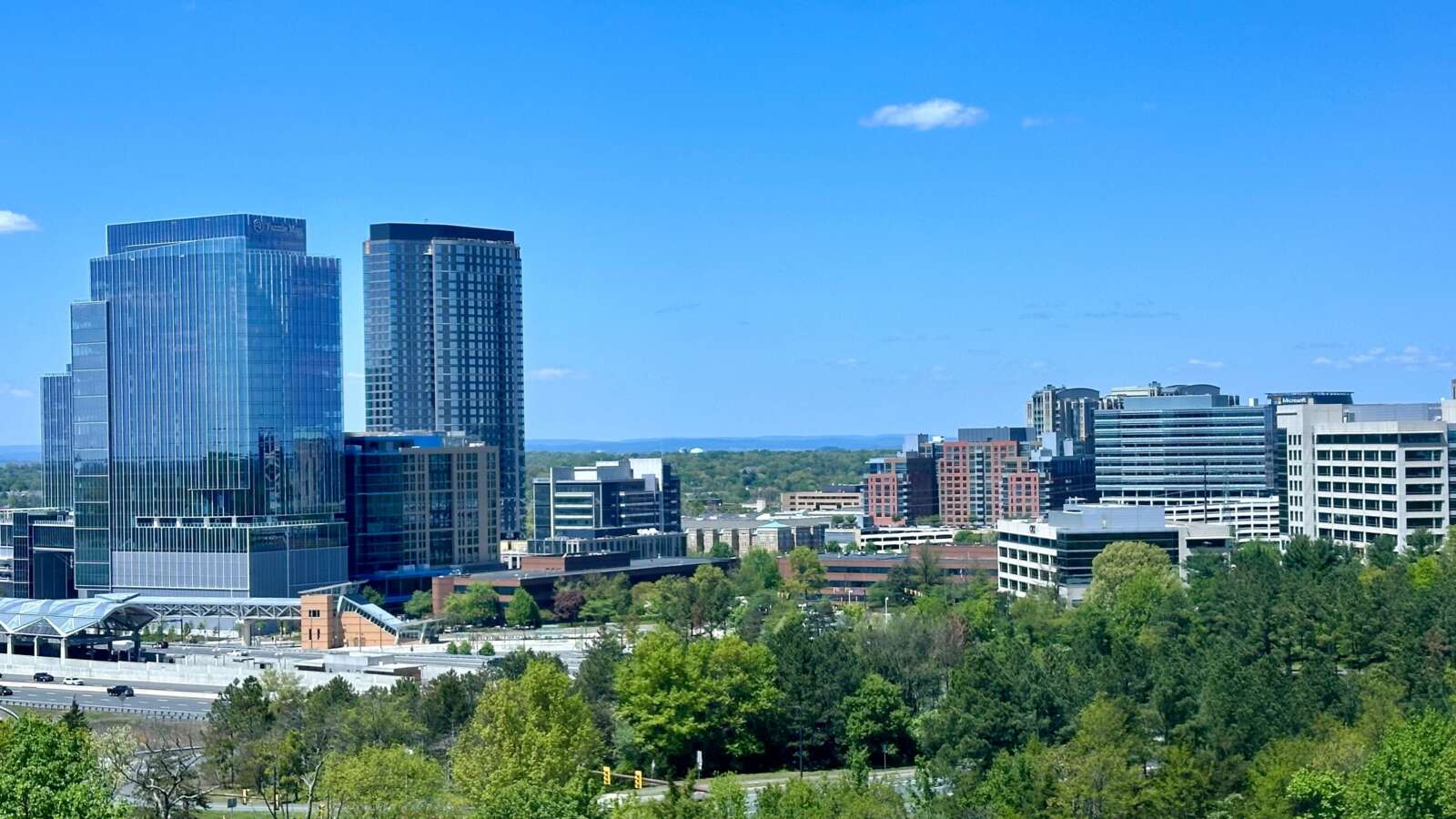
Developers are seeking permission to redevelop Reston’s two golf courses through a process where Fairfax County considers land use changes to its comprehensive plan.
The county is currently considering dozens of nominations throughout the county for the Site-Specific Plan Amendment process, including the redevelopment of Reston National Golf Course and Hidden Creek Country Club.
Currently, the county’s comprehensive plan states that both areas are planned for private recreation uses — more specifically as golf courses. For years, community organizations like Rescue Reston have vehemently opposed the redevelopment of both golf courses.
Reston National
Weller Development and War Horse Cities, the owners of Reston National, want to convert the “obsolescent golf course” into a 100-acre open space conservancy with an 8-acre linear park and a “mixed-use village.” The concept is not new and was initially floated several years ago.
The application says the development team could pursue a more intense development plan with more residential development, given its “substantial, longstanding zoning rights.”
“Repurposing the property to provide much needed community amenities, a range of housing and shopping opportunities, and permanent useable open space with covenants, so as to preserve that open space in perpetuity, better utilizes one of Reston’s premier assets,” the application says.
But the prospect has previously drawn backlash from community groups. Hunter Mill District Supervisor Walter Alcorn also publicly stated that he would not support redevelopment, unless there is existing community support.
The owners say the golf course is the “very definition of underutilization,” averaging 95 people per day on an annual basis across its 168 acres.
“To remain a dedicated ‘golf course’ is counter to the vision set out by Robert E. Simon in his founding principles, as his was a uniquely inclusionary vision,” the application argues. “Far worse, this serves to delay or potentially forfeit a timely opportunity to accomplish key goals set out by Fairfax County leadership.”
The application proposes converting the golf course into a “village” with new houses and retail and permanent open space dubbed the Conservancy, joined by a linear park that could have nurseries for native plants, vegetable gardens, and pollinators.
The Conservancy is described as a “generational opportunity” to create publicly accessible open space with restored meadows, a performance pavilion, other pavilions, seating areas, community gardens, a dog park, waterfront pier, and new trees.
“Reston National Golf Course has been the focus of intense debate within the community going back more than a decade,” Steve Siegel, a partner at Weller Development, wrote in the application. “While this Owner respects and understands the perspective of Reston National’s immediate neighbors, we contend that, as wonderful as the game of golf is for the few who actually play it, a private pay-to-play golf course is the wrong use for this site in 2022 and moving forward.”
Hidden Creek
Wheelock Communities, the owner of Hidden Creek Country Club, also contend that the golf course “no longer contributes appropriate to the live, work and play principles on which Reston was based,” adding that the country club has roughly 500 members.
The application notes that a significant number of the club’s membership lives outside of Reston.
“The reality, therefore, is that the combination of weakening economics and competing country club and golf course options, together with ongoing and significant need for capital reinvestment not supported by current revenue, means the Country Club’s future in its current form is shaky, at best,” wrote Mark Cooley, a land use lawyer representing Wheelock.
Instead, the developer pitches turning roughly 100 acres of the property into recreational open space and adding residential units, which could include a range of housing types at several price points to address the “missing middle” of affordable housing.
In July, the Fairfax County Board of Supervisors tweaked the SSPA process by allowing more frequent opportunities for nominations, new submission criteria with more information, and enhanced community engagement.
The Fairfax County Board of Supervisors is expected to decide which nominations will move forward — and which ones will be killed — at a meeting on Dec. 6.
The first SSPA cycle kicked off in 2017 for the North County area followed by a second cycle in 2019 for the South County area.
In October, the county accepted nominations for all nine supervisor districts in the current SSPA cycle.
A complete list of other SSPA nominations for the Hunter Mill District is available online.





